Addiction is a long-term (chronic) condition in which you struggle to gain control over something that you are doing, using or taking – despite these actions causing harmful consequences to your physical health, mental health or relationships and work.
Defining Addiction
Over the last few decades, the understanding of addiction has vastly changed in the medical community. Addiction is now seen as a lifelong relapsing disorder characterised by episodes of compulsive behaviour which often has harmful effects on your person’s life.
While there is a better understanding of addiction, there is still extensive growth in the neuroscience research behind addiction. Some key models explain addiction in the brain’s reward system and the impact this can have on a person.
What Causes Addiction?
Addiction has several different causes. In the case of gambling, you might feel a mental “high” following a win, which activates the pleasure centre of your brain. This may then trigger urges to continue the same behaviour.
When it comes to drugs, alcohol and nicotine; these substances may produce pleasurable feelings in a person and lead to substance misuse. You may then seek these pleasurable activities. However, as the addiction escalates you may need more and more to get the same effect. This in turn can create both, a physical and psychological addiction to the particular substance.
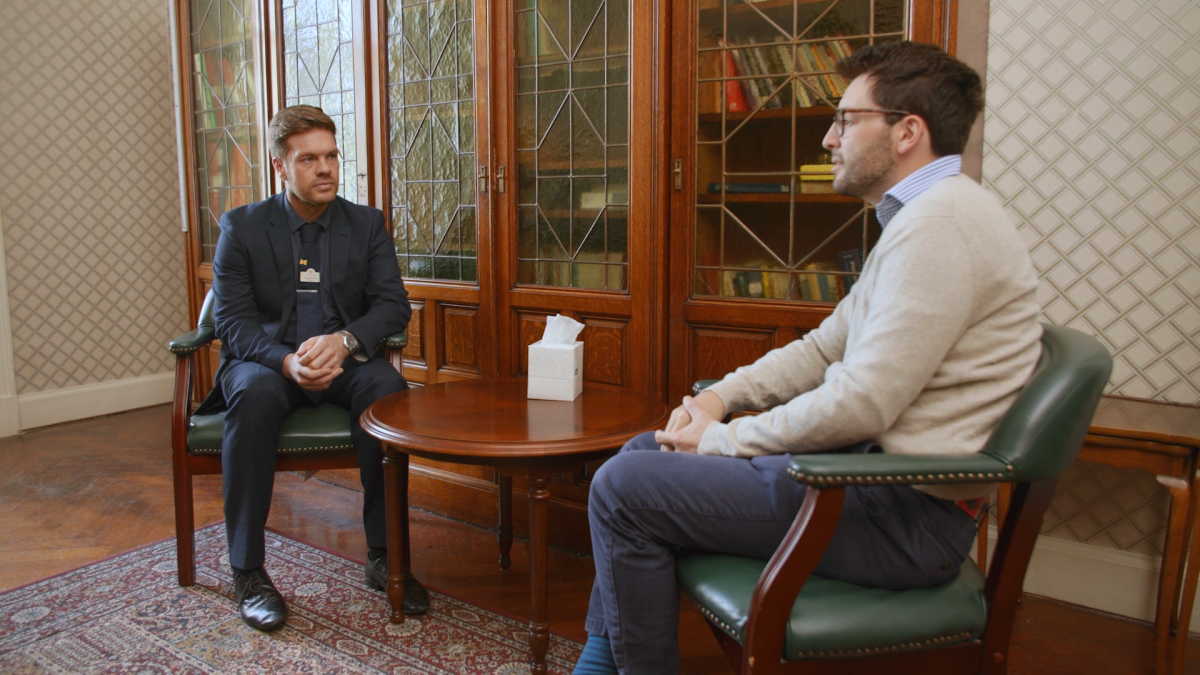
The Biopsychosocial Model of Addiction
The biopsychosocial model of addiction looks at the reasons why some people may struggle more with addiction than others. While each individual’s life experiences and genetic makeup are unique – the risk factors are multifactorial. To understand how to overcome addiction you have to understand the underlying elements involved. Three main categories influence this; biological, social, and psychological factors.
Biological Factors
This is often referred to as the “genetic” or biological tendency towards addiction. While the concept of the “addiction gene” has long been replaced with theories involving complex interactions within the neurobiology of the brain. Nonetheless, there is some strong evidence, especially in twin studies which demonstrate that genetics can have an impact on your risk of addiction.
One of these theories is known as the Reward Deficiency Syndrome – which proposes that some individuals are born with genetically “underactive” neural pathways in the brain, this can in turn prime them to be more vulnerable to returning to potentially addictive activities. This can lead to a persistent pattern of drug misuse and ultimately addiction.
Furthermore, brain imaging has shown that people with addictions to drugs have decreased activity in the frontal cortex part of the brain. This is the part of the brain responsible for memory, attention and judgement. This may explain why even though an addiction may cause compulsive drug-seeking behaviour and cause harm to the person’s life – they may still find it difficult to seek professional help.
Social Factors
The social environment people grow up in has an impact on the likelihood of becoming addicted. Studies have shown that factors like a family member’s socioeconomic background, education level and wealth can all be direct predictors of future problems with multiple addictions (including alcohol, tobacco and marijuana).
Certain social situations can also act as facilitators for addictive behaviour, where potentially addictive behaviour can go hand in hand with social enhancement (e.g. after-hour drinks with work colleagues or poker night with friends). While these social situations can be healthy and part of a normal balanced life, there are times when they can lead to more persistent problems.
These environmental factors may not necessarily lead to addiction in all individuals but coupled with other factors like stress, financial problems, mental health problems and relationship issues, can all increase your risk of developing addictive behaviours.
Psychological Factors
Each person reacts uniquely to the circumstances around them. However, some psychological factors could make a person more vulnerable to addictions. People who suffer from mental disorders like depression and anxiety tend to be more at risk of falling into dependency.
Another important factor is our personality and people who have an impulsive personality and have risk-taking behaviour are also more likely to become addicted. People’s past experiences can also impact the risk of drug addiction, for example, individuals who have experienced trauma in the past may resort to substance misuse as a coping strategy, especially in the context of post-traumatic stress disorder (PTSD).
The biopsychosocial model of addiction argues that there is a dynamic interplay between the social and psychological makeup as well as the predetermined neurobiological genetics. There doesn’t seem to be one factor alone that controls addiction and self-control, but a whole host of them.
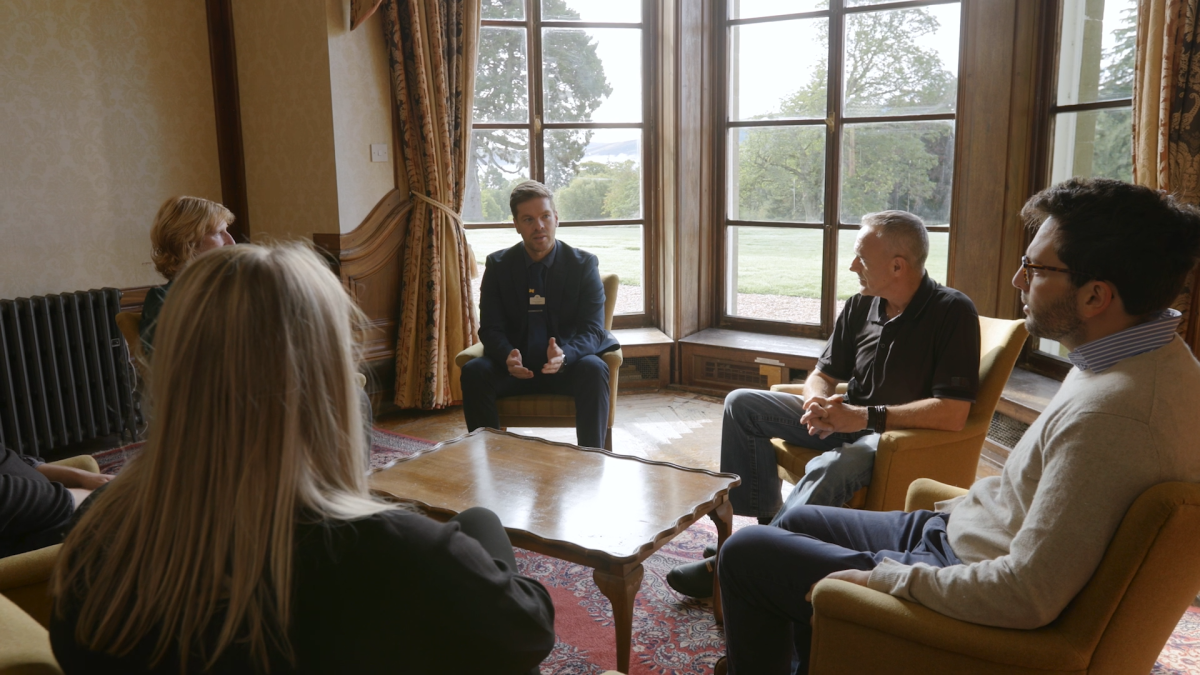
Types of Addiction
Broadly speaking there are two types of addictions: substance addiction – nowadays called substance use disorders, and behavioural and processing addictions.
Substance Addictions
Substances are drugs that have potentially addictive activities on the brain. These can be common everyday items which you can buy from a supermarket or prescription medications which would need to be prescribed by a doctor:
- Coffee (Caffeine).
- Tobacco (Nicotine).
- Cannabis.
- Anti-anxiety medications (Diazepam, Lorazepam and other benzodiazepines).
- Alcohol.
- Cocaine.
- Heroin.
- Opioid-based prescription pain medication – Codeine, Oxycodone, Oramorph.
- Sedative/Sleeping tablets (zopiclone).
While each of these substances may vary in the way that they work, the key principle is that they can often create a pleasurable response in the brain. With continued use, this activation of the neural pathways can lead you to develop substance use disorders.
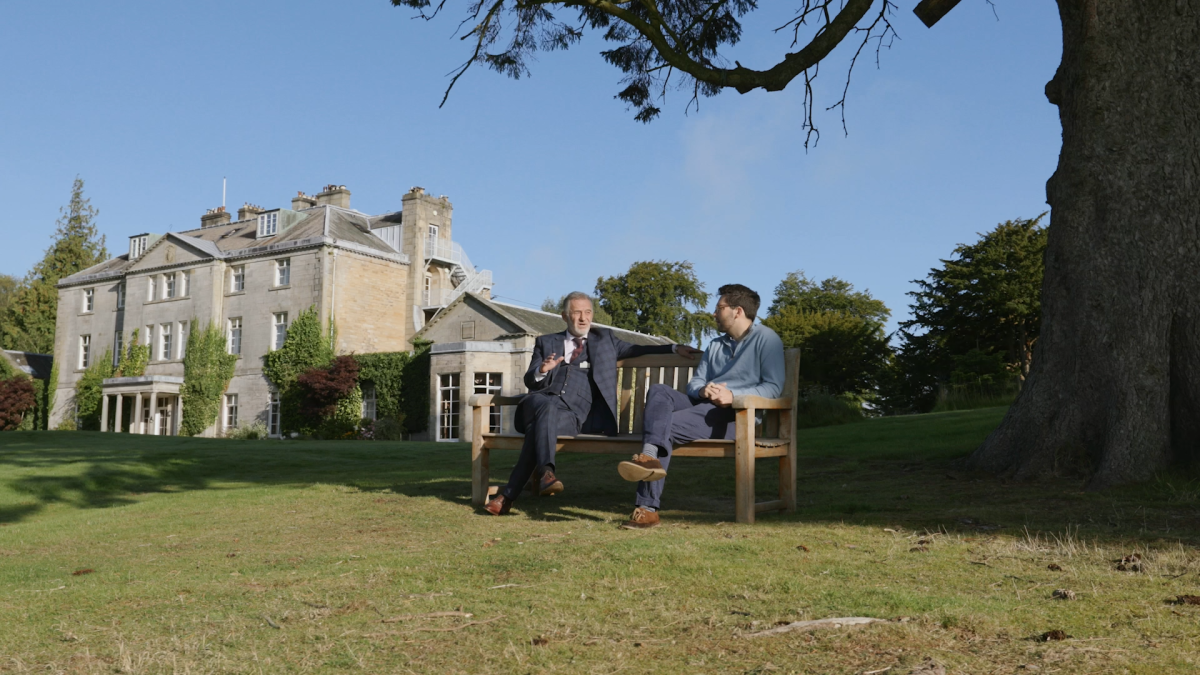
Behavioural & Process Addictions
Similar to substances, behavioural addictions also generate reward circuits in the brain. These are some examples of behavioural addictions:
- Gambling
- Sex.
- Video games.
- Disordered eating.
- Porn.
- Social media/internet use.
- Exercise.
Unlike substance addiction, behavioural addiction is not related to the stimulation of the brain from an external chemical or substance. Often there is a complex interplay between reward centres within the brain, your motivation centre, memory and emotions.
Behavioural addictions may not cause the physical effects of withdrawal symptoms when you stop the behaviour, however, it can still be as powerful as substance addictions and sometimes more challenging to treat.
Dual Diagnosis
Overcoming an addiction can be challenging in itself, but people can often also have other mental health problems. This is known as a dual diagnosis – the co-occurrence of an underlying mental disorder AND an addiction. It is thought that up to 50% of people with addiction also have other mental health issues.
The treatment of a dual diagnosis can be complex and often challenging. You would often need a professional and thorough assessment to determine the relationship between the two and to develop a treatment programme that can address them both.
The Impact & Implications of Addiction
Addiction can impact you in several different ways. Firstly – the impact on your health. Depending on the type of addiction, your physical health could be put at risk. For alcohol use disorder, individuals are more likely to have liver and gastrointestinal problems, as well as vitamin deficiencies and malnutrition which can lead to weight loss.
On the other hand, those using cocaine can cause structural heart problems which can lead to having a heart attack – even at a young age. For certain behavioural addictions like gambling or gaming addiction, the activity can become so consuming that people may miss meals or sleep.
This can affect your mental health and well-being too. If you have not slept well often your concentration, memory and emotional balance can be impacted. Addiction can also worsen underlying mental health issues e.g. anxiety and depression.
A less talked about but often vital issue is social isolation. Once addiction takes a grip on your life, one of the adverse consequences can be the loss of friends, family and colleagues. In the case of substance misuse, as the drug becomes the most important thing in your life – people with addiction can sometimes withdraw from loved ones and friends. This loss of supportive friends and family members can often make overcoming addiction more difficult.
How it Affects Others
Addiction can also affect those around you and strain relationships with family members and friends. This can in turn create conflict as the addiction escalates, which can lead to broken ties. Households affected by addiction are also at a higher risk for physical, emotional and psychological abuse.
There is also the risk of financial hardship, as an addiction to a substance or activity worsens so can the cost. Families often take on the financial responsibility for a person with an addiction, helping them with money or letting them move back into their family home. This can place a much higher financial burden on families.
Addiction is a life-long medical condition which has underlying root causes in the biological makeup, our personal experiences and our psychological well-being. It can have profound effects on your mental, physical and financial health. Addiction can also impact families and put them in hardship. Often the most difficult step is acknowledging that you have an addiction, once it has been identified it would be important to consider the treatment options.
Each person’s addiction and personal problems are unique to the individual. Seeking professional help to create a thorough, tailor-made treatment program can help identify these and put a plan in place to help resolve them.
Addiction Treatment at Castle Craig
At Castle Craig, we understand that addiction is not just a physical challenge but a psychological and emotional one too. Our treatment approach is holistic, addressing the physical, mental, and emotional aspects of addiction. Our programmes include detoxification, individual therapy, group therapy, and an introduction to the 12 Step recovery model.

Detoxification and Medical Care
The first step in overcoming addiction is detox, and at Castle Craig, this process is managed by experienced medical professionals. We provide a safe and comfortable environment for withdrawal, with round-the-clock care to ensure the physical safety and comfort of our patients. Our medical team is skilled in managing the physical symptoms of withdrawal, making the process as smooth as possible.
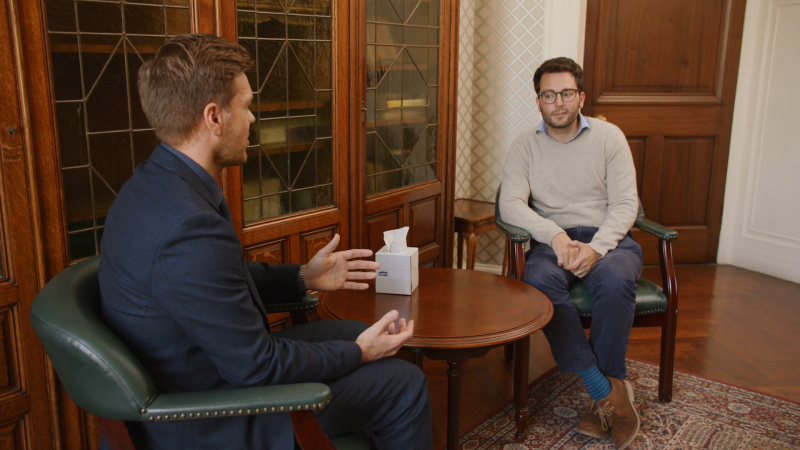
Therapeutic Treatments
Therapeutic treatment is designed to address the underlying causes of addiction. Individual therapy sessions allow patients to explore personal issues with a trained therapist, while group therapy offers support and understanding from peers undergoing similar challenges. We also offer specialised therapies, such as Cognitive Behavioural Therapy (CBT), which are tailored to meet the unique needs of each patient.

Holistic and Alternative Therapies
Recognising the importance of holistic healing, Castle Craig offers a range of alternative therapies. These include mindfulness meditation, yoga, art therapy, and equine therapy. These therapies complement traditional treatments and help patients develop new ways of coping with stress and emotional pain.
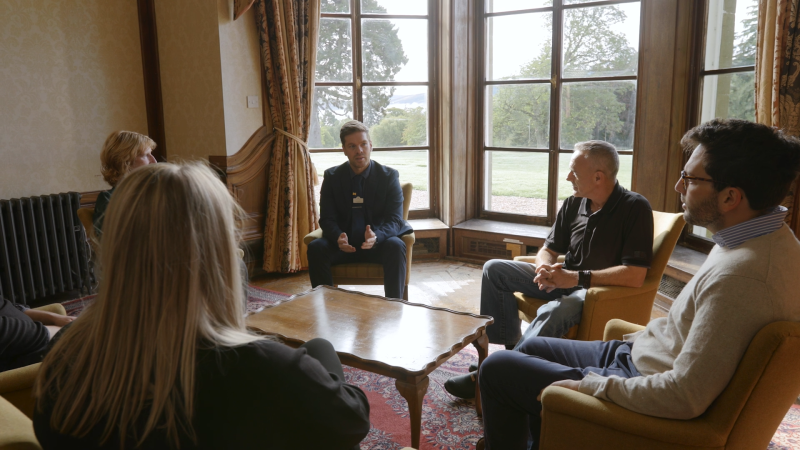
Family Programme
Addiction affects not just the individual but also their loved ones. Our family programme provides support and education to families of patients. It helps them understand the nature of addiction, how to support their loved one in recovery, and how to take care of their mental health.
Aftercare and Continued Support
Recovery from addiction is a lifelong journey. Castle Craig provides comprehensive aftercare support to help our patients maintain their sobriety after leaving our facility. This includes follow-up appointments, support groups, and access to resources for continued recovery.

Download Our Brochure
Accessing Our Services
If you or a loved one is struggling with substance misuse or behavioural addiction, Castle Craig is here to help. You can reach out to us via our website, phone, or email. Our Help Centre is available to answer any questions, guide you through the admissions process, and help you take the first step towards recovery.
Take that courageous step towards a healthier, happier life. Contact Castle Craig today to begin your journey to recovery. Our compassionate team is here to support you every step of the way, providing expert care in a nurturing environment. Remember, recovery is possible, and it begins when you reach out for help.
Experts You Can Trust
With a wealth of knowledge and services to help you regain control of your life, request a call-back from one of our professionals today. The choice you make today could change your life forever.

